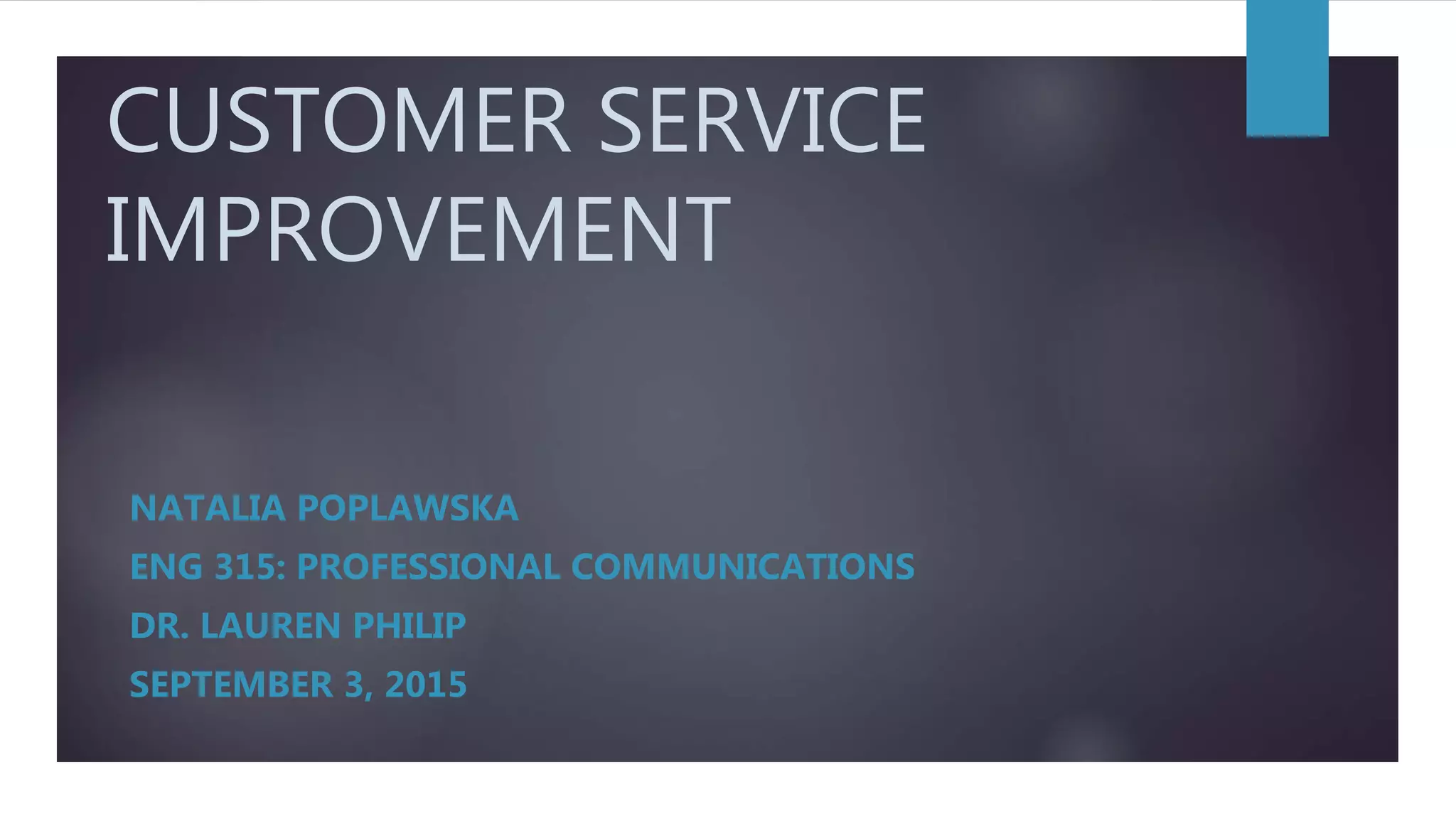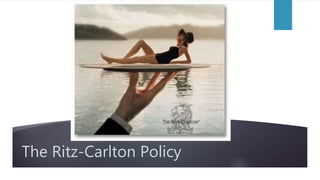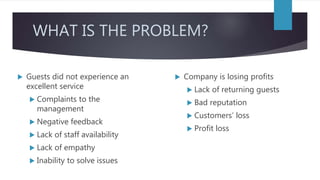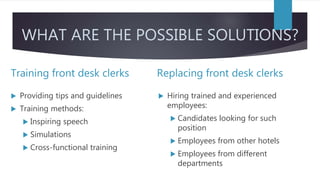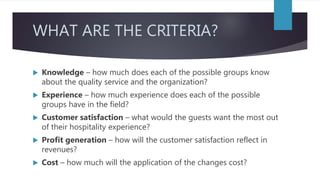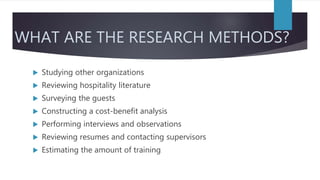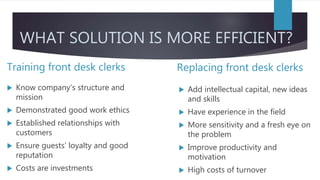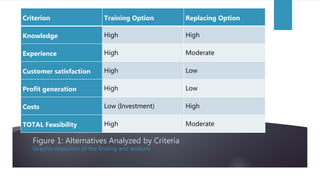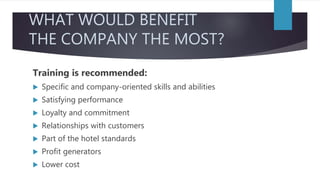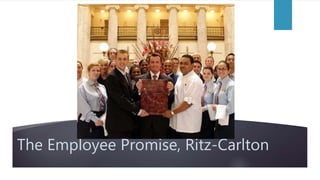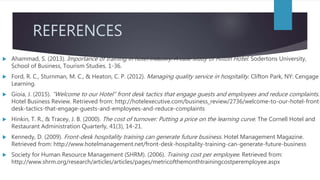This document discusses ways to improve customer service at a hotel. It identifies that guests were unhappy with the service from front desk clerks, leading to complaints and lost business. Two potential solutions are proposed: training the existing clerks or replacing them. A number of criteria are examined to evaluate the options, including experience, customer satisfaction, costs and more. Research methods like surveys and cost-benefit analysis are suggested. Ultimately, the document recommends training the current clerks as it has benefits like retaining knowledgeable employees and relationships while costing less than replacement.
